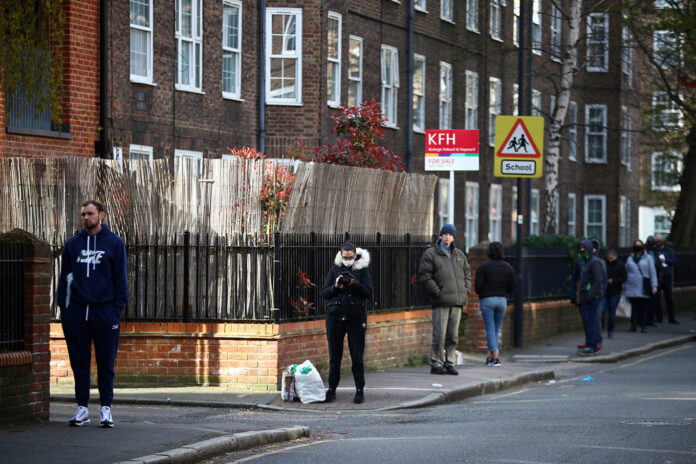A new report out this morning by the Legatum Institute provides the first estimates of poverty in Winter 2020 and shows that, although the number of people in poverty has increased, almost 700,000 have been protected by the £20 a week increase to Universal Credit and other benefits.
Compared to a situation where the Covid-19 pandemic and associated economic fallout had not hit the UK, there are now 690,000 more people in poverty.However, changes that the Government introduced to benefits, including an increase of £20 a week to Universal Credit and Working Tax Credits, and the suspension the Minimum Income Floor (which applies to self-employed people claiming Universal Credit), have insulated many families from the economic impacts of Covid-19.
Together, these changes have prevented a further 690,000 people from moving into poverty; meaning that Government action has halved the increase in poverty that would have otherwise occurred.
The report also shows that increases in poverty have not been consistent across the population
Increases in poverty in Winter 2020 have been largest amongst working-age adults, with an additional 640,000 people in this group now in poverty.
The increases to benefits have also meant that some groups have seen a fall in poverty. In particular, poverty amongst people living in lone-parent families has reduced by 100,000 people and for those living in workless families by more than 150,000 people.
This has meant that impacts on poverty amongst children have been more muted than might have been expected, with a rise in poverty of 120,000 children.
Baroness Philippa Stroud, CEO of Legatum Institute said:
“Given the well-documented impacts that the pandemic is having on jobs and earnings for families right across the UK, it comes as no surprise that poverty is rising. However, our analysis shows that, at a time of crisis, Government action can protect many of those who are vulnerable to poverty, but it needs to have the right tools and the right information at its disposal.”
“To ensure this continues as we begin to adapt to life after, or living with, Covid-19, there is a clear need for a comprehensive anti-poverty strategy to be placed at the heart of the UK’s Covid-recovery response.”
“That’s why we’re calling for the Government to urgently push ahead with its development of Experimental Poverty Statistics based on the Social Metrics Commission’s work. These measures shine a light on the drivers of poverty and the range of tools Government has to tackle it; from boosting incomes and promoting work to tackling mental health and supporting families.”
Helen Barnard, Director of JRF said:
“It is clear that the £20 per week uplift in Universal Credit has prevented many people from falling into poverty. We should be proud of our country’s decision to protect those on the lowest incomes through our social security system – it’s the right thing to do. But it makes it all the more disappointing that the Chancellor has stayed silent on whether this lifeline will stay in place beyond April, leaving millions to wait out the winter in fear and uncertainty. There is no conceivable scenario in which this support will not be needed, and inaction risks a sharp rise in poverty.
“Even with the additional measures put in place at the start of the pandemic, we have seen rising hardship and debt this year. People who receive legacy benefits, largely those who are sick, disabled or caring for others, have been left out of any additional support so far, and extending them a lifeline must be a priority.
“It’s not too late for the Chancellor to do the right thing. We urge the Government in the strongest terms to correct its course and commit to making the £20 uplift permanent and extend it to legacy benefits at the earliest opportunity.”







